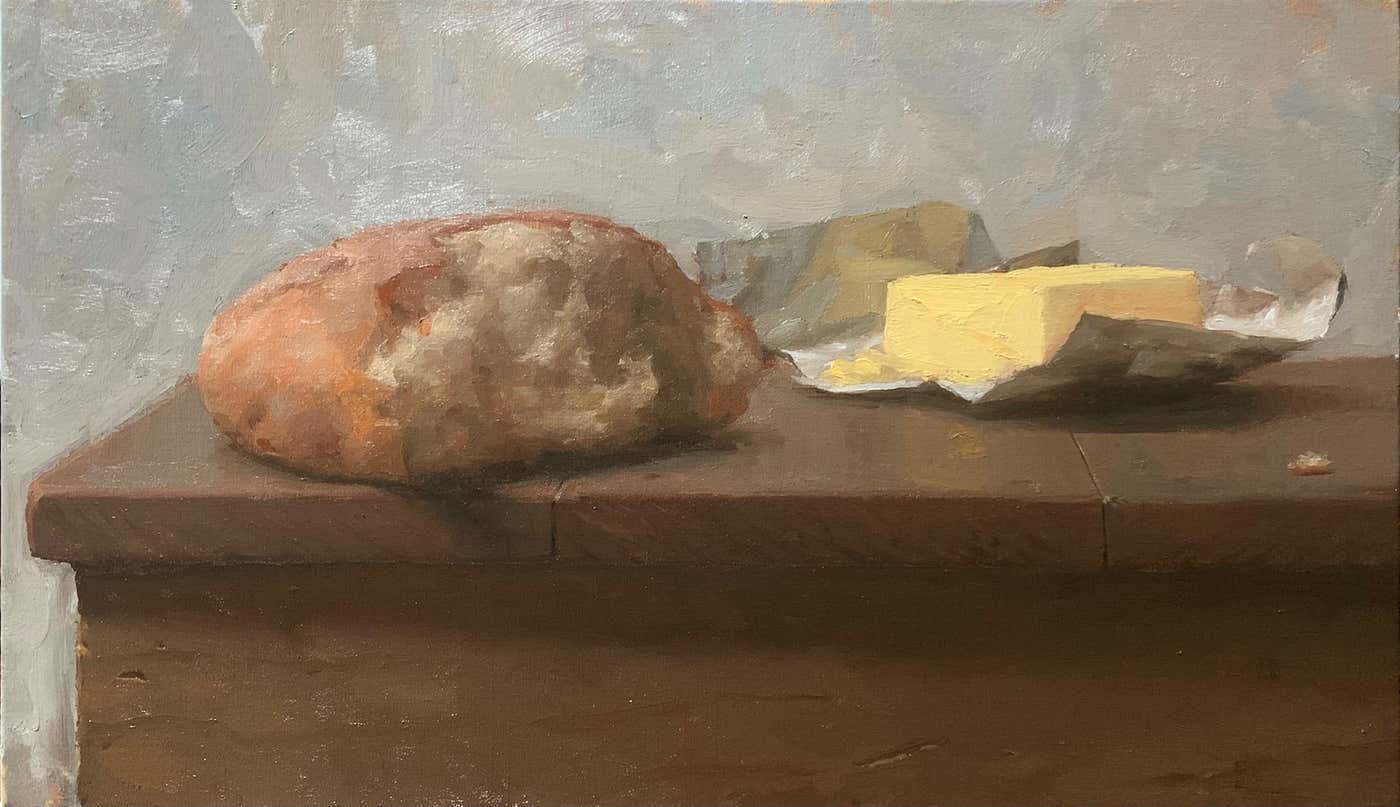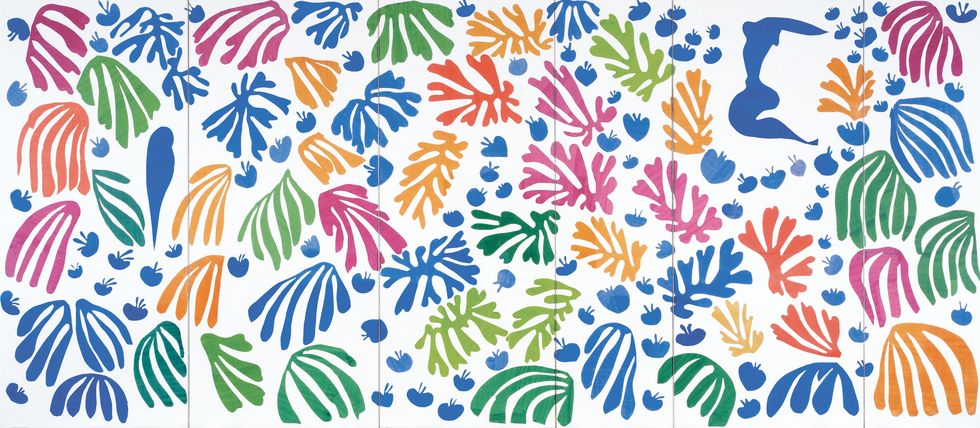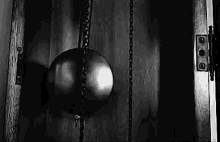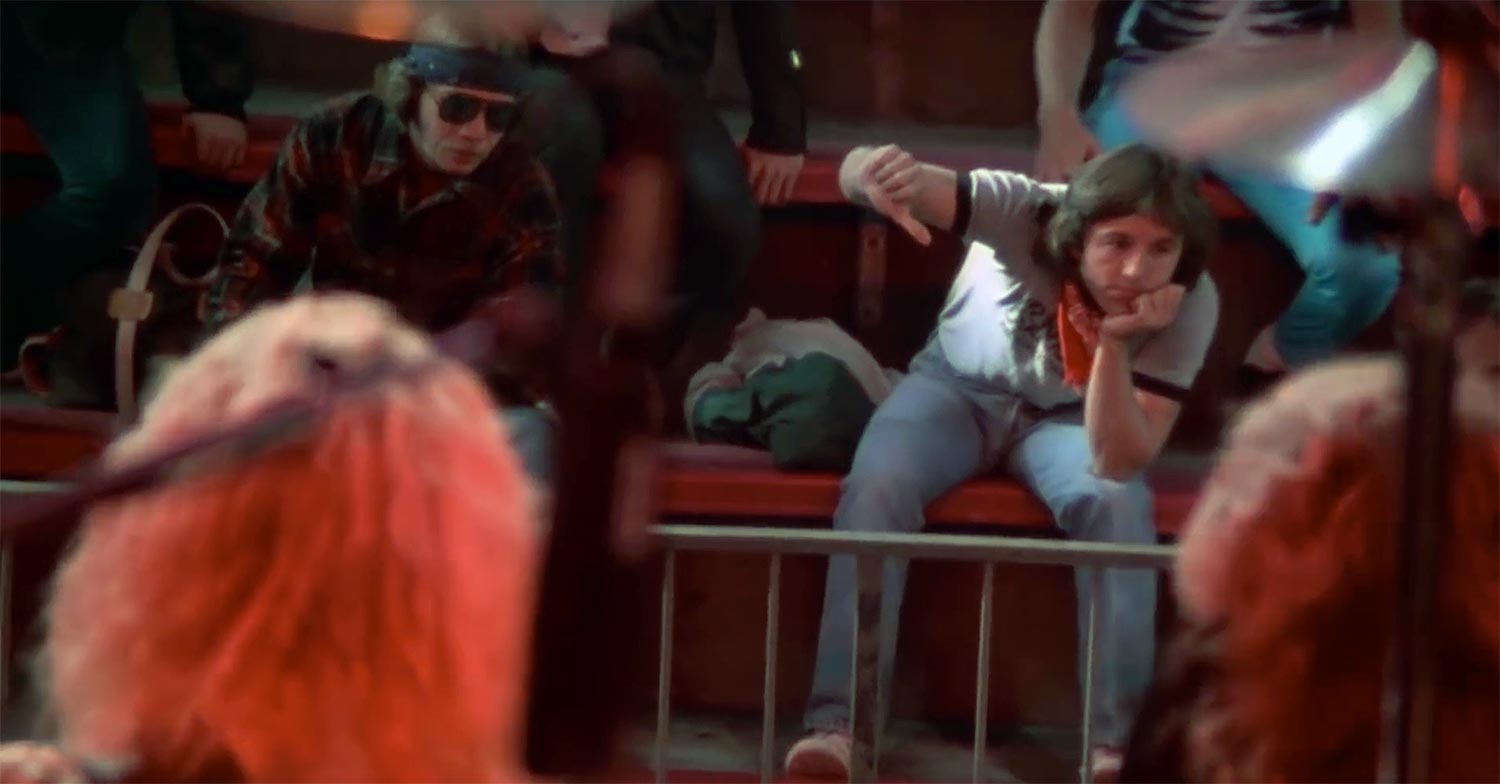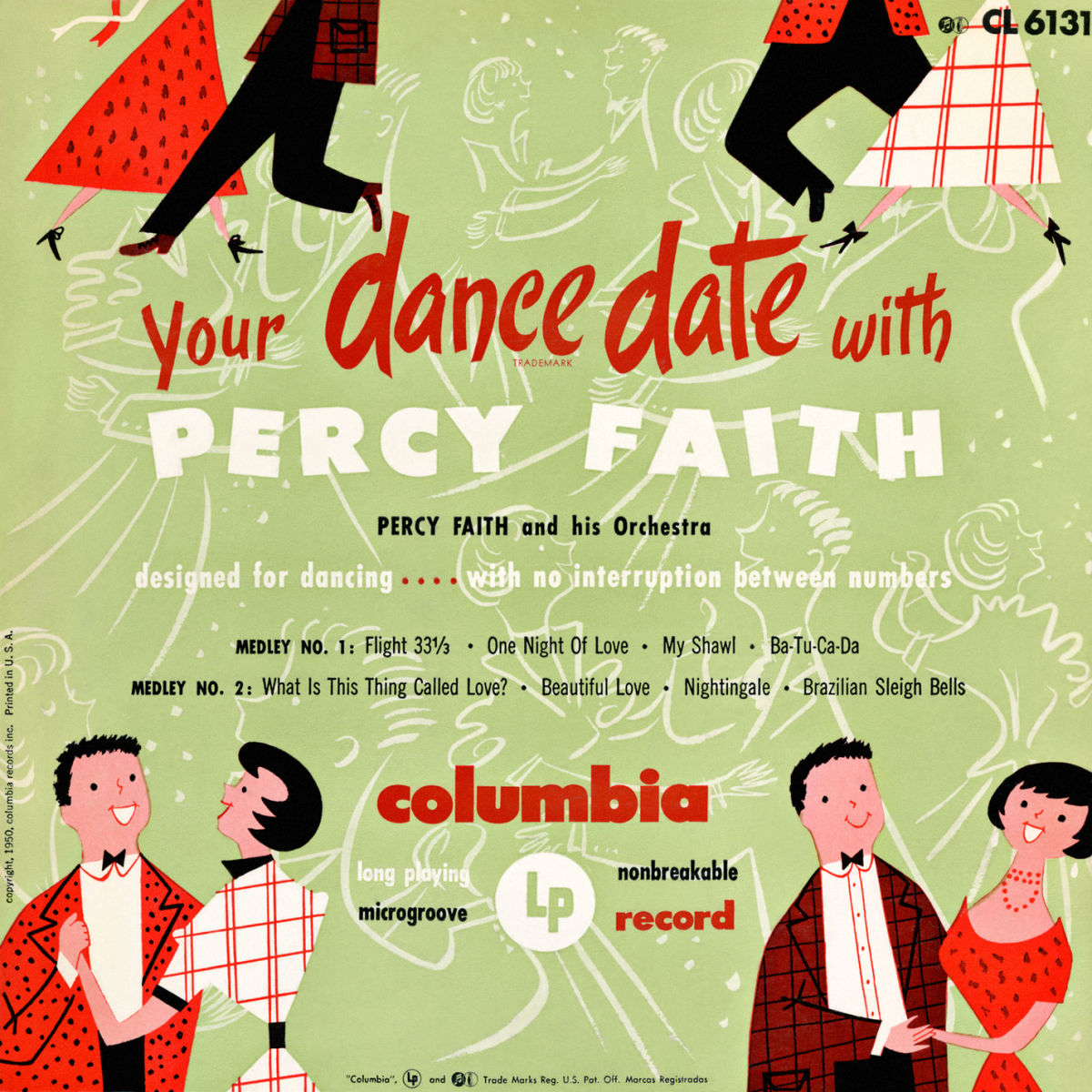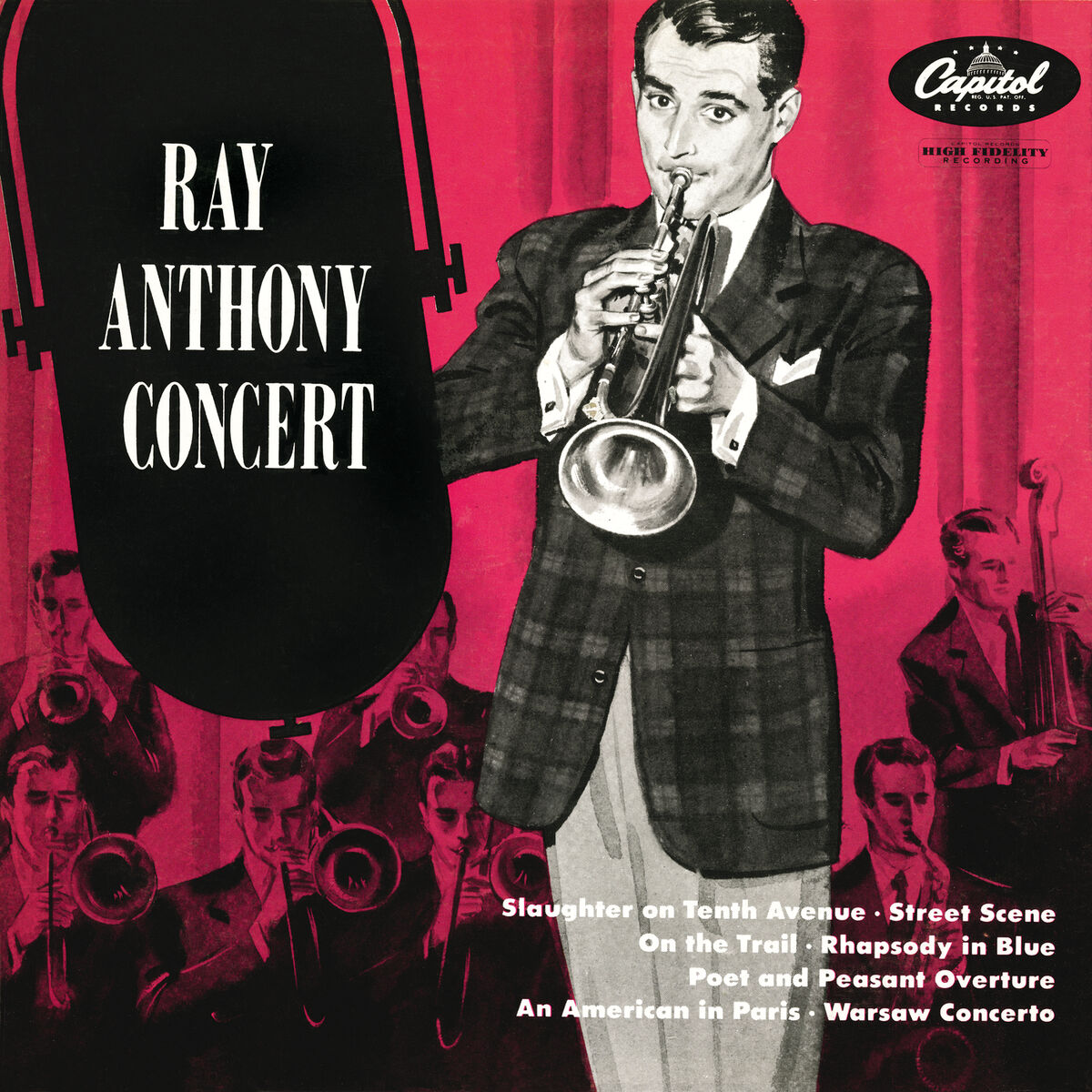Dignitas Amicorum Pie Zeses Vivas!
31 December 2024
W. A. Mozart, Vesperae solennes de confessore, K. 339
Patricia Janečková performs the Laudate dominum with members of the Prague Chamber Orchestra ...
Strauss II, Die Fledermaus
Johanna Malangré directs the Orchestre de Picardie and Opéra de Lille Chorus ...
Still.
And still his name sounds stirring
Unto the men of Rome,
As the trumpet-blast that cries to them
To charge the Volscian home;
And wives still pray to Juno
For boys with hearts as bold
As his who kept the bridge so well
In the brave days of old ...
Thomas Babington Macaulay, from "Horatius"
Bless.
Collins, Bread and Butter, 2022
The PASSING of the YEAR
My glass is filled, my pipe is lit,
My den is all a cosy glow;
And snug before the fire I sit,
And wait to feel the old year go.
I dedicate to solemn thought
Amid my too-unthinking days,
This sober moment, sadly fraught
With much of blame, with little praise.
Old Year! upon the Stage of Time
You stand to bow your last adieu;
A moment, and the prompter’s chime
Will ring the curtain down on you.
Your mien is sad, your step is slow;
You falter as a Sage in pain;
Yet turn, Old Year, before you go,
And face your audience again.
That sphinx-like face, remote, austere,
Let us all read, whate’er the cost:
O Maiden! why that bitter tear?
Is it for dear one you have lost?
Is it for fond illusion gone?
For trusted lover proved untrue?
O sweet girl-face, so sad, so wan
What hath the Old Year meant to you?
And you, O neighbour on my right
So sleek, so prosperously clad!
What see you in that aged wight
That makes your smile so gay and glad?
What opportunity unmissed?
What golden gain, what pride of place?
What splendid hope? O Optimist!
What read you in that withered face?
And You, deep shrinking in the gloom,
What find you in that filmy gaze?
What menace of a tragic doom?
What dark, condemning yesterdays?
What urge to crime, what evil done?
What cold, confronting shape of fear?
O haggard, haunted, hidden One
What see you in the dying year?
And so from face to face I flit,
The countless eyes that stare and stare;
Some are with approbation lit,
And some are shadowed with despair.
Some show a smile and some a frown;
Some joy and hope, some pain and woe:
Enough! Oh, ring the curtain down!
Old weary year! it's time to go.
My pipe is out, my glass is dry;
My fire is almost ashes too;
But once again, before you go,
And I prepare to meet the New:
Old Year! a parting word that’s true,
For we’ve been comrades, you and I—
I thank God for each day of you;
There! bless you now! Old Year, good-bye!
Robert W. Service
Labels:
appreciation,
art,
Collins,
New Year,
poetry,
poetry rules!,
Service
Maxwell-Davies, "An Orkney Wedding with Sunrise"
Scottish Chamber Orchestra, conducted by Ben Gernon, performs ...
Happy Birthday, Matisse
Matisse, The Parakeet and the Mermaid, 1952
You must forget all your theories, all your ideas before the subject. What part of these is really your own will be expressed in your expression of the emotion awakened in you by the subject. We ought to view ourselves with the same curiosity and openness with which we study a tree, the sky or a thought, because we too are linked to the entire universe.
Henri Matisse, born on this day in 1869
Danger.
American Libraries reports that college libraries are contemplating meditation rooms.
At what point then is the approach of danger to be expected? I answer, if it ever reach us, it must spring up amongst us. It cannot come from abroad. If destruction be our lot, we must ourselves be its author and finisher. As a nation of freemen, we must live through all time, or die by suicide.Abraham Lincoln, from his "Address Before the Young Men's Lyceum of Springfield, Illinois,"January 27, 1838
30 December 2024
Released.
Rick Ocasek released his debut solo album Beatitude on this day in ... 1982.
"Something to Grab For"
There are always exceptions. The rest of this album is the Wang-Chungiest.
Wander.
The commonest question writers get asked is, "Where do you get your ideas from?" The truthful answer is I don't know, they just turn up. But when you're wandering about with your mouth open and your eyes glazed waiting for them to do so there are a few better places to wander about in than Oxford ...
Everywhere.
Read poetry every day of your life. Poetry is good because it flexes muscles you don’t use often enough. Poetry expands the senses and keeps them in prime condition. It keeps you aware of your nose, your eye, your ear, your tongue, your hand.
And, above all, poetry is compacted metaphor or simile. Such metaphors, like Japanese paper flowers, may expand outward into gigantic shapes. Ideas lie everywhere through the poetry books, yet how rarely have I heard short story teachers recommending them for browsing.
What poetry? Any poetry that makes your hair stand up along your arms. Don’t force yourself too hard. Take it easy. Over the years you may catch up to, move even with, and pass T. S. Eliot on your way to other pastures. You say you don’t understand Dylan Thomas? Yes, but your ganglion does, and your secret wits, and all your unborn children. Read him, as you can read a horse with your eyes, set free and charging over an endless green meadow on a windy day.
Ray Bradbury, from Zen in the Art of Writing: Releasing the Creative Genius Within You
Frolic.
A NEW-YEERE GIFT
Sent To Sir Simeon Steward
No news of navies burnt at seas;
No noise of late spawn'd tittyries;
No closet plot or open vent,
That frights men with a Parliament:
No new device or late-found trick,
To read by th' stars the kingdom's sick;
No gin to catch the State, or wring
The free-born nostril of the King,
We send to you; but here a jolly
Verse crown'd with ivy and with holly;
That tells of winter's tales and mirth
That milk-maids make about the hearth;
Of Christmas sports, the wassail-bowl,
That tost up, after fox-i'-th'-hole;
Of blind-man-buff, and of the care
That young men have to shoe the mare;
Of twelfth-tide cakes, of pease and beans,
Wherewith ye make those merry scenes,
Whenas ye chuse your king and queen,
And cry out, Hey for our town green!
Of ash-heaps, in the which ye use
Husbands and wives by streaks to chuse;
Of crackling laurel, which fore-sounds
A plenteous harvest to your grounds;
Of these, and such like things, for shift,
We send instead of New-year's gift.
Read then, and when your faces shine
With buxom meat and cap'ring wine,
Remember us in cups full crown'd,
And let our city-health go round,
Quite through the young maids and the men,
To the ninth number, if not ten;
Until the fired chestnuts leap
For joy to see the fruits ye reap,
From the plump chalice and the cup
That tempts till it be tossed up. ‒
Then as ye sit about your embers,
Call not to mind those fled Decembers;
But think on these, that are t' appear,
As daughters to the instant year;
Sit crowned with rose-buds, and carouse,
Till Liber Pater twirls the house
About your ears, and lay upon
The year, your cares, that's fled and gone:
And let the russet swains the plough
And harrow hang up resting now;
And to the bag-pipe all address,
Till sleep takes place of weariness.
And thus throughout, with Christmas plays,
Frolic the full twelve holidays.
Robert Herrick
The Smiths, "Panic"
Burn down the disco
Hang the blessed DJ
Because the music that they constantly play
It says nothing to me about my life ...
Facing.
Then out spake brave Horatius,
The Captain of the gate:
"To every man upon this earth
Death cometh soon or late.
And how can man die better
Than facing fearful odds,
For the ashes of his fathers,
And the temples of his Gods?"
Thomas Babington Macaulay, from "Horatius"
Time.
Where does discontent start? You are warm enough, but you shiver. You are fed, yet hunger gnaws you. You have been loved, but your yearning wanders in new fields. And to prod all these there's time, the Bastard Time.
John Steinbeck
Beirut, "The Rip Tide"
So the waves and I
Found the rolling tide
So the waves and I
Found the rip tide ...
Agreement.
Much of what happens to us in life is nameless because our vocabulary is too poor. Most stories get told out loud because the storyteller hopes that the telling of the story can transform a nameless event into a familiar or intimate one. We tend to associate intimacy with closeness and closeness with a certain sum of shared experiences. Yet every day total strangers, who will never say a single word to one another, can share an intimacy. An intimacy contained in the exchange of a glance, a nod of the head, a smile, a shrug of a shoulder. A closeness which lasts for a second or for the duration of a song being sung and listened to together. An agreement about life. An agreement without clauses. A conclusion spontaneously shared between the untold stories gathered around the song.
John Berger, from Confabulations
Happy Birthday, Kipling
MANDALAY
By the old Moulmein Pagoda, lookin' lazy at the sea,
There's a Burma girl a-settin', and I know she thinks o' me;
For the wind is in the palm-trees, and the temple-bells they say:
"Come you back, you British soldier; come you back to Mandalay!"
Come you back to Mandalay,
Where the old Flotilla lay:
Can't you 'ear their paddles chunkin' from Rangoon to Mandalay?
On the road to Mandalay,
Where the flyin'-fishes play,
An' the dawn comes up like thunder outer China 'crost the Bay!
'Er petticoat was yaller an' 'er little cap was green,
An' 'er name was Supi-yaw-lat - jes' the same as Theebaw's Queen,
An' I seed her first a-smokin' of a whackin' white cheroot,
An' a-wastin' Christian kisses on an 'eathen idol's foot:
Bloomin' idol made o' mud
Wot they called the Great Gawd Budd
Plucky lot she cared for idols when I kissed 'er where she stud!
On the road to Mandalay...
When the mist was on the rice-fields an' the sun was droppin' slow,
She'd git 'er little banjo an' she'd sing "Kulla-lo-lo!
With 'er arm upon my shoulder an' 'er cheek agin my cheek
We useter watch the steamers an' the hathis pilin' teak.
Elephints a-pilin' teak
In the sludgy, squdgy creek,
Where the silence 'ung that 'eavy you was 'arf afraid to speak!
On the road to Mandalay...
But that's all shove be'ind me - long ago an' fur away
An' there ain't no 'buses runnin' from the Bank to Mandalay;
An' I'm learnin' 'ere in London what the ten-year soldier tells:
"If you've 'eard the East a-callin', you won't never 'eed naught else."
No! you won't 'eed nothin' else
But them spicy garlic smells,
An' the sunshine an' the palm-trees an' the tinkly temple-bells;
On the road to Mandalay...
I am sick o' wastin' leather on these gritty pavin'-stones,
An' the blasted English drizzle wakes the fever in my bones;
Tho' I walks with fifty 'ousemaids outer Chelsea to the Strand,
An' they talks a lot o' lovin', but wot do they understand?
Beefy face an' grubby 'and -
Law! wot do they understand?
I've a neater, sweeter maiden in a cleaner, greener land!
On the road to Mandalay...
Ship me somewheres east of Suez, where the best is like the worst,
Where there aren't no Ten Commandments an' a man can raise a thirst;
For the temple-bells are callin', an' it's there that I would be
By the old Moulmein Pagoda, looking lazy at the sea;
On the road to Mandalay,
Where the old Flotilla lay,
With our sick beneath the awnings when we went to Mandalay!
O the road to Mandalay,
Where the flyin'-fishes play,
An' the dawn comes up like thunder outer China 'crost the Bay!
Rudyard Kipling, born on this day in 1865.
The rest of Kipling's poems are HERE.
Sugar-Coated.
Listen to the first Def Leppard album compared with their third and tell me the same evil forces that infected Journey hadn't conspired to spin the world in the opposite direction. The masses ate it and smiled.
I hold MTV responsible for crimes against humanity in the death-by-castration of many great bands. Drastic changes in the musical direction (not to mention hairstyles) of U2, Van Halen, Journey, and Def Leppard can be traced to the late summer of 1981. Look at any classic rock band's discography; the delineation between '81 and '82 is clear: perms over power chords, techno over tooth-music, keyboards over kicking-ass. Hell, our local rock station even put Prince on heavy rotation that year. The station never recovered.
By '85, Jello Biafra had seen enough ...
How far will you go, how low will you stoopTo tranquilize our minds with your sugar-coated swillYou've turned rock and roll rebellion into Pat Boone sedationMaking sure nothing's left to the imagination
Country music suffered similarly and don't even get me started on the L.A.M.E. (Look At Me, Everyone!) Rain Man histrionics present in nearly every classical music video.
Even Yes was pushed over the edge, pop culture giving them their best selling album.
Rick Wakeman is correct, clearly it was a money-grab; the coup never would have been successful had the fat cats not gotten fatter. Go to any live concert these day, you'll see that the indoctrination is complete.
The heart of music has always beat most strongly in record stores not on screens. Beautiful Noise, Singing Dog, Magnolia Thunderpussy, Used Kids, Threshold were the cathedrals of my youth where I listened carefully and developed the thumb-and-forefinger technique of flipping through bins with a keen eye peeled on the only visual that has ever mattered, the album cover (have you ever held a copy of Jimmy Buffett's gatefolded Son of a Son of a Sailor album in your hands? Furthermore, poet-laureate Buffett with a mustache gave us "Death of an Unpopular Poet," "The Wino and I Know," and "Incommunicado." Pretty-boy Buffett, sans-mustachio bred Latitude Margaritaville.) The devolution of Rolling Stone magazine and the mere existence of the Rock and Roll Hall of Fame further my case.
Remember what Jefferson taught us, kids: the only aristocracy is that of the mind. Imagination lives, books are always better than the movies made from them, and the musically genuine will blaze eternally (see Jerry Jeff Walker, Paul Weller, and Malcolm Young).
Lightning Hopkins never lip-synced.
29 December 2024
Rediscovery.
My work is my life. I cannot think of one without the other. To “retire” means to me to begin to die. The man who works and is never bored is never old. Work and interest in worthwhile things are the best remedy for age. Each day I am reborn. Each day I must begin again.
For the past eighty years I have started each day in the same manner. It is not a mechanical routine but something essential to my daily life. I go to the piano, and I play two preludes and fugues of Bach. I cannot think of doing otherwise. It is a sort of benediction on the house. But that is not its only meaning for me. It is a rediscovery of the world of which I have the joy of being a part. It fills me with awareness of the wonder of life, with a feeling of the incredible marvel of being a human being. The music is never the same for me, never. Each day is something new, fantastic, unbelievable.
Pablo Casals
Uncertainty.
My life has been a path at the edge of uncertainty. Today, I think we educate kids to be settled in the comfortable chair. You have your job, you have your little car, you have a place to sleep and the dreams are dead. You don’t grow on a secure path. All of us should conquer something in life and it needs a lot of work and it needs a lot of risk in order to grow and to improve you have to be there at the edge of uncertainty.
Chef Francis Mallmann
Pile.
Amateur Night is approaching. Stay in and pile thirteen hours of long-playing, microgrooved, nonbreakable stereophonic platters on the hi-fi ...
Designed for dancing with no interruption between numbers.
Kurt suggests a worthy addition ...
Subscribe to:
Comments (Atom)


